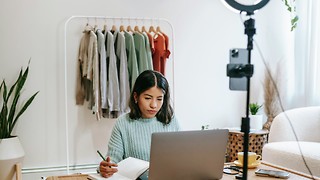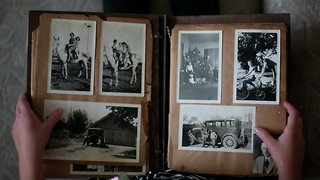Interview: Laura van der Heijden
The 2012 BBC Young Musician competition winner talks to Frank Au about her musical development and her plan to study at Cambridge

The University of Cambridge is full of musical talents, but not many prospective students have made regular appearances with the Royal Philharmonic Orchestra (RPO). Last week, the 18-year-old cellist Laura van der Heijden performed Tchaikovsky’s Rococo Variations with the RPO at the Cambridge Corn Exchange. This was her sixth performance with the RPO since 2012. I asked Laura about her experience as a soloist with the orchestra.
“The biggest thing I’ve done with them was the Elgar concerto in the Royal Festival Hall. That was an amazing experience – also nerve-wracking, because it was a huge hall, and a serious occasion. But the orchestra members were very supportive and friendly; it’s so nice to play with them.”
Elgar’s cello concerto is famously associated with another British cellist, Jacqueline du Pré, whose 1965 recording with Sir John Barbirolli and the London Symphony Orchestra has inspired generations of musicians and listeners worldwide. How does Laura approach this concerto?
“If you’re an English girl playing Elgar in England, you have to be so careful – you want to listen to a great recording to get inspired, but there’s also a need to stay away so you don’t start copying things.
“You have to develop your own ideas. Jacqueline du Pré plays in a way that is very energetic and outward-looking. I see this concerto as more inward-looking. I just feel that this piece is so noble, and there’s something very painful deep down in its nobility. So I play it very differently, but I still get comments that I’m so much like Jackie! Her sound is so much in people’s heads that they almost superimpose it onto what they hear.
“While it’s flattering to be compared to her, I would rather be known as ‘the new Laura’ than ‘the next Jackie’.”
Laura started learning the cello when she was six; her father is an amateur cellist. By the time she was ten, Laura had gained ABRSM (Associated Board of the Royal Schools of Music) grade 8 distinctions on both cello and piano. How did she do it?
“My mum helped me a lot with practising. I often needed someone to help me start, because I didn’t like starting to practise – I still don’t. I found practising quite daunting. It can be so frustrating, when it takes so many attempts to achieve what you’re trying to achieve.”
Anyone who has tried to learn an instrument would understand Laura’s frustration: it is the reason why many young people quit. Why didn’t she?
“I didn’t like practising, but I have always loved music. My parents and I would have these talks – 'am I practising enough', 'do I really want to continue with this'. I always carried on with it because I wanted to be able to choose one day. If I had given up, I would no longer be able to choose. I would want to have that choice when I’m 18 or 19, and I knew that I would regret it deeply if I couldn’t make music.
“Cello happens to be my instrument and it allows me to express my music. If I had given it up, I would be devastated now.”
Laura’s persistence paid off in 2012, when she won the BBC Young Musician competition. This biennial competition, broadcast on BBC, was billed as a “search for UK’s best young musician”. Winning was a major turning point.
“I had just turned 15, and wasn’t really thinking about a career in music. But the day after the competition I suddenly had new expectations of myself, and I was no longer content with the way I was doing things.” Laura had a new goal: “To become the best musician I can be.”
For many maturing artists, the transition from childhood to adult life can be difficult. How was Laura’s experience?
“It’s been tough. I think it was Picasso who said it takes a lifetime to paint like a child. In a way, that sort of child-like openness and just playing what comes out without any walls or boundaries is actually very hard to achieve once you become conscious of how you should play. For me it’s a day-to-day struggle to be connected to that raw emotion. I think every musician struggles with it.”
In her quest to “become the best musician I can be”, Laura is currently taking full advantage of a gap year, performing at different venues in Europe and elsewhere (including a scheduled performance at the BBC Proms festival in Melbourne). But in October 2016, she will come to Cambridge and study Music at St John’s College.
“I want to explore the academic side of music, because my focus so far has been on the performance side.”
It might have taken Picasso a lifetime to paint like a child, but along the way he produced many interesting paintings. Laura believes that learning music is a lifelong project, but as those who attended her concert last week can attest, she makes beautiful music along the way.
 Interviews / You don’t need to peak at Cambridge, says Robin Harding31 December 2025
Interviews / You don’t need to peak at Cambridge, says Robin Harding31 December 2025 Comment / What happened to men at Cambridge?31 December 2025
Comment / What happened to men at Cambridge?31 December 2025 News / Unions protest handling of redundancies at Epidemiology Unit30 December 2025
News / Unions protest handling of redundancies at Epidemiology Unit30 December 2025 News / Varsity’s biggest stories of 202531 December 2025
News / Varsity’s biggest stories of 202531 December 2025 News / Downing investigates ‘mysterious’ underground burial vault 29 December 2025
News / Downing investigates ‘mysterious’ underground burial vault 29 December 2025









